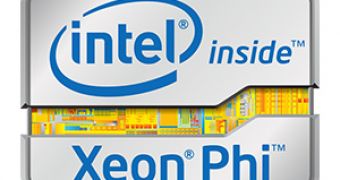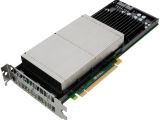Unfortunately, Nvidia’s DP PF64 performance with its Kepler GPU is over 6 times slower than what Fermi is able to put out. Kepler’s DP FP64 performance sits at just 95 Gigaflops, or 0.09 TFLOP.
Make sure you check out the first and second parts of our GPU compute analysis.
The cards are clearly targeted at different applications, and at this point we believe that Nvidia would have been better off with a 28-nm-based Fermi with increased performance and lower thermals.
Practically, a dual-GPU Fermi Tesla card built with 28-nm GPUs, but clocked at the same frequencies would be able to put out over 1.3 TFLOPs of DP FP64 performance.
Nvidia could really pull this one out of their hat if the company decided to take this route.
Now, many of our readers are probably thinking about the possibility that Nvidia could combine the best of both architectures and achieve the impressive single-point performance of Kepler and the high DP FP64 performance of Fermi.
We believe that that’s exactly what Nvidia’s K20 is going for. The GK110 GPU inside will most likely provide competitive DP FP64 performance and even better single-point raw power.
Therefore, while Intel used its clout and money to kick Nvidia’s Tesla out of some of the supercomputers and servers that are now being built, Nvidia might strike back with a new set of Tesla products that will offer much better performance.
It is also important to note that with Intel’s Xeon-Phi we’re talking about theoretical performance, as the cards are not out yet, while Nvidia’s Tesla K10 cards are up for grabs.
Nobody can deny Intel’s performance achievements, and we believe that the simpler method of Xeon-Phi coding and optimization is a considerable advantage over Nvidia’s CUDA.
On the other hand, Intel will have a tough road ahead if the next TESLA K20 card offers 1.7 or 1.9 TFLOPs of DP FP64 raw computing power.
Find out more in our fourth part.

 14 DAY TRIAL //
14 DAY TRIAL // 
